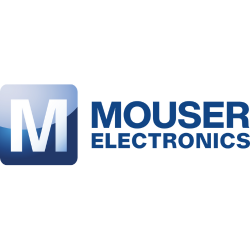How AI is Revolutionising Procurement in the Electronics Industry
20-06-2024 | By Mouser Electronics
Artificial intelligence (AI) is revolutionising not only the future of technology and the electronics industry but also the way procurement professionals conduct their work. Currently, much of a procurement specialist’s job is manual. While some automated tools exist, tasks like supplier selection, risk management, negotiations, inventory control, and forecasting can be time-consuming, prone to human error, and dependent on personal experience. Additionally, analysing market trends and managing supplier relationships leave little room for other activities.
AI is set to transform many roles by performing some tasks better than humans can—and we might welcome this change when we consider the future it promises. In electronics procurement, the role of the procurement professional could evolve significantly due to AI. This blog guides procurement professionals towards a clearer understanding of how AI and procurement might collaborate by examining seven ways AI stands to reshape the profession:
1. From Transactional to Strategic
AI can automate routine tasks, allowing procurement specialists more time to focus on supplier relationship management, strategic sourcing, and overall business strategy. These AI-driven digital assistants will enhance responsiveness and decision-making, enabling quick replies to inquiries and improving decisions across the supply chain. For example, AI can prioritise shipments based on various factors, leading to improved delivery times and reduced costs.
2. From Manual Vetting to AI Insights
AI tools will facilitate refined risk management strategies and ethical sourcing practices. The technology can help assess supplier risk, monitor compliance with sustainability and ethical standards, and execute responsible sourcing strategies. AI will be crucial in building risk-resilient supply chains, integrating advanced views into disruptions and opportunities as they plan. For instance, connected data across the organisation can lead to hyper-predictive logistics that assist in vetting and risk management.
3. New Sustainable Supply Chains
AI supports sustainable supply chain initiatives by improving how organisations sense, recognise, and react to disruptions and opportunities. It enhances the ability to identify suppliers committed to sustainable manufacturing processes and materials. The role of the procurement specialist will evolve towards strategically managing efficient and environmentally responsible supply chains. Skills in data analytics, environmental ethics, and strategic planning will become increasingly important.
4. Advanced Technology Proficiency
As AI technologies are embedded in procurement processes, specialists must understand these technologies deeply, leading to a new skill set. This includes understanding AI algorithms, managing AI systems, and staying updated with technological advancements. Continuous learning and training will be essential to maintain proficiency and leverage new AI resources effectively.
5. Customisation and Personalisation
AI will enable specialists to analyse customer data and preferences more efficiently, creating customised product offerings. Future AI tools will enhance the ability to compare specifications and parameters of electronic components, confirming project requirements and anticipating future needs. Close collaboration with suppliers will be necessary to ensure product specifications meet evolving market demands, focusing on negotiation and product development skills.
6. Change Management and Adaptability
Integrating AI into procurement processes will require strong change management skills. Procurement teams will lead the transition to new systems and processes, necessitating adaptability, leadership, and the ability to manage resistance. This role will extend beyond traditional procurement, involving guiding teams through transitions and ensuring smooth AI implementation.
7. Focus on Value Creation
With AI, procurement specialists can move beyond cost savings to focus on creating long-term business value through innovative procurement practices. This includes identifying opportunities for product innovation, improving time-to-market, and enhancing supplier collaboration to drive competitive advantage. AI should be seen as a tool to create new value rather than a hurdle.
How to Get Started
Understanding AI’s future benefits is essential, but how can one start reaping its benefits now? Here are ways to begin incorporating AI into daily processes:
- Automate routine tasks to gain time for strategic responsibilities.
- Enrol in courses and workshops focused on AI applications in risk management.
- Refine data analytics skills to interpret AI-generated insights effectively.
- Implement AI systems that analyse the environmental impact of supply chain activities.
- Use AI to analyse market data and customer reviews, identifying trends.
- Streamline the onboarding process and qualify new suppliers with AI.
- Optimise shipping routes, manage inventory, and anticipate disruptions with AI.
- Integrate AI into project management to set timelines, allocate resources, and track progress.
Conclusion
AI stands to reshape the future of procurement, performing manual, repetitive tasks and allowing procurement specialists to engage in more strategic, value-driven activities. Procurement professionals should become familiar with these AI tools, looking for opportunities to enhance supplier selection, risk management, and sustainability initiatives. Embracing AI promises increased efficiency and cost savings, positioning procurement specialists at the core of business innovation and decision-making.
For more insights on how AI is transforming the electronics industry, visit the original Mouser Electronics article.
To better understand the roots of today’s AI breakthroughs, explore the history of AI and how it’s influenced modern innovation.

